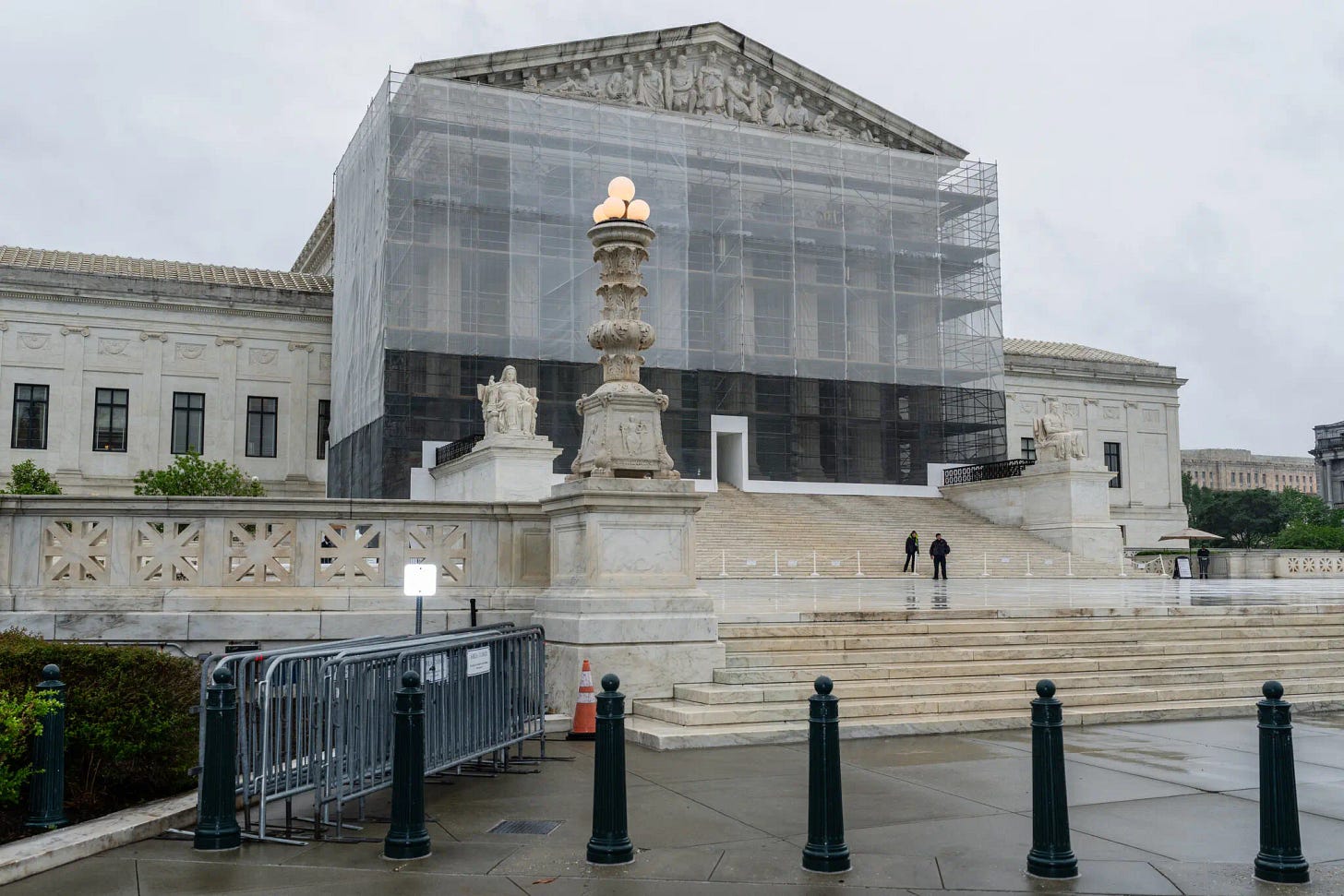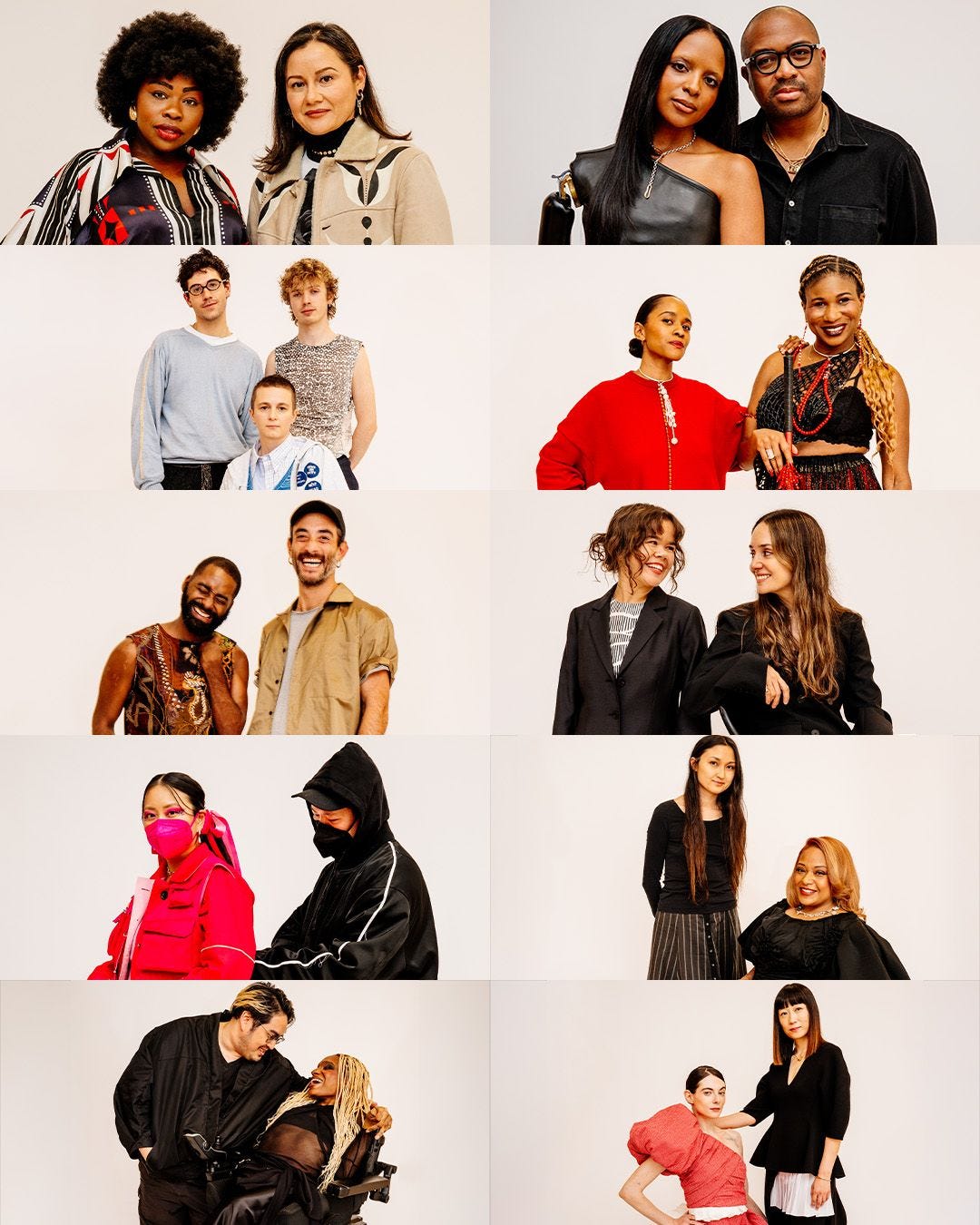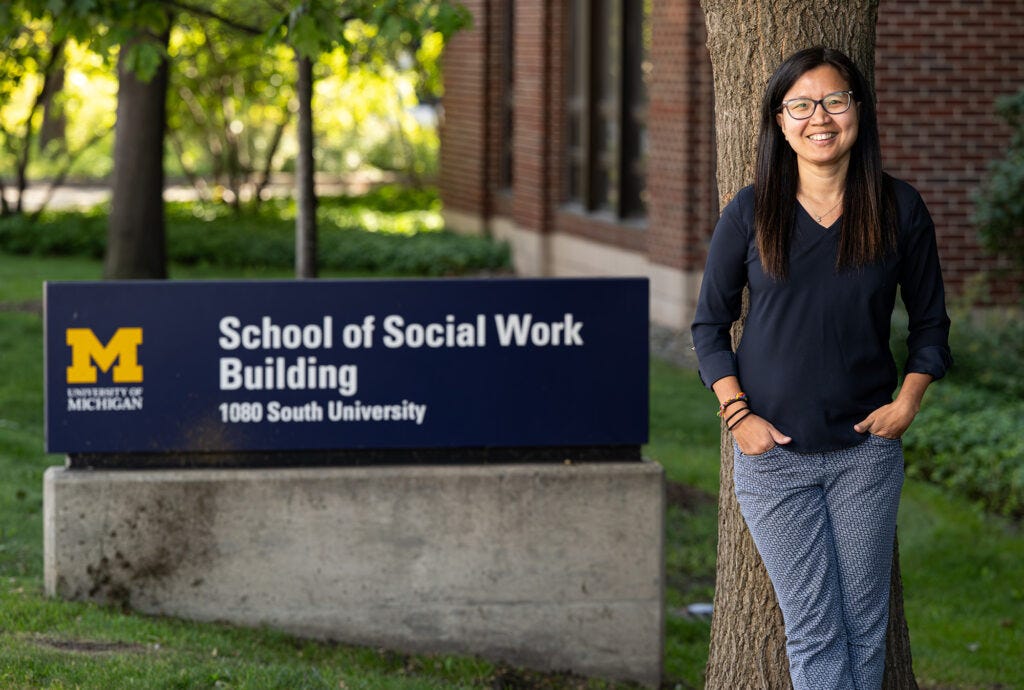Crip News v.208
A legal digest by Dynah Haubert, new works, "disability justice," calls, and events.
NEWS
A Legal Digest from Dynah Haubert
Dynah, a queer disabled lawyer and activist based in Washington DC, lends us some of their brilliance today by recapping important decisions from the 2024 - 2025 term of the US Supreme Court (SCOTUS) and highlighting some notable cases on the current docket.
Some SCOTUS decisions of interest from their 2024-2025 term:
The court limited who can sue a former employer under the ADA. This case involved a retired firefighter with Parkinson’s who sued when she learned that her employer had changed how long it would pay for health insurance for disability retirees.
SCOTUS upheld Tennessee’s ban on puberty blockers and hormone therapy for trans teens. Even though Tennessee allows cis teens to access the same treatments, SCOTUS held that the ban did not “draw sex-based classifications” - distinctions based on sex that would have triggered heightened scrutiny of the ban. Similar bans in other states may now remain in place.
SCOTUS made it easier for majority-group plaintiffs to sue their employers for reverse discrimination. Such plaintiffs can no longer be required to show “background circumstances,” such as the employer having a pattern of discrimination against their group.
South Carolina excludes Planned Parenthood from its Medicaid program because it provides abortions. Although the Medicaid Act requires states to ensure that Medicaid patients can obtain care from “any qualified provider,” SCOTUS held that individuals - like the plaintiff here, who had Medicaid and wanted to receive gynecological care from Planned Parenthood - cannot sue their state for excluding a provider from Medicaid.
In some rare good news, the court unanimously held that students bringing claims relating to their education under the ADA and the Rehabilitation Act do not need to show that the discrimination they experienced was the result of bad faith or gross misjudgment, but are instead subject to the same standards that apply in other disability discrimination contexts. This means students can sue for discrimination even if their school did not intentionally discriminate against them.
There is reason to be concerned about this decision, though: Justice Thomas expressed that in the future, he would be open to finding that “bad faith or gross misjudgment” is the correct standard for any litigation under Title II of the ADA and Section 504 of the Rehabilitation Act, meaning that plaintiffs could no longer sue over unintentional discrimination - which makes up the (probably vast) majority of discrimination claims under these laws.
A few cases on the court’s docket for the current term that may be of interest to follow:
Little v. Hecox and West Virginia v. B.P.J. both concern the constitutionality of laws that bar transgender women and girls from participating on girls’ and women’s sports teams.
Chiles v. Salazar concerns a challenge to Colorado’s ban on conversion therapy for young people, on the basis that the ban violates providers’ free speech rights.
Hamm v. Smith concerns how courts should determine whether a death penalty defendant may not be executed due to intellectual disability.
About Dynah
Dynah Haubert is Associate General Counsel in the federal Office of Congressional Workplace Rights. They have long been dialed into disability arts, culture, and community. On the anniversary of the ADA in 2016, they took the stage at the Democratic National Convention. “I became a lawyer,” they said, “to advocate that disability is not a problem to be cured, but a part of our identity and diversity.”
New Works
Project LETS recently released a new installment of their Mad Liberation 101 explainers on “Why we use the term Madness.”
This year’s design challenge for the CFDA/Vogue Fashion Fund paired designers with disabled artists, in partnership with Tilting the Lens.
Panteha Abareshi’s CAREROTICS: on giving and taking is up at Human Resources Los Angeles through Nov. 16.
This week, Vancouver’s Glitch Theatre, formerly Realwheels Theatre, premieres Faye’s Room, written by autistic playwright Alex K. Masse, at Vancity Culture Lab (Vancouver).
Chanika Svetvilas’s Resounding Remnants, an exhibition celebrating “disability, mad pride, intersectional identity, and the importance of accessibility, community care, and interdependence,” is up at The Hunterdon Art Museum (Clinton, NJ) through Jan. 11, 2026.
Artist Genevieve Cameo recently published a zine called "Guide to organising Covid safer events.”
A recent article in The Economist looked at “England’s broken system for meeting special educational needs.”
“Disability Justice”
Every so often, I report on some of the corners of the internet where I notice this term is appearing. Here’s some of what’s new:
In Queer Kentucky, organizers Sage Barr and Mo Viviane recently discussed why “Disability justice is the backbone of trans movements.”
Dr. Kate Caldwell of Northwestern Law’s Center for Racial and Disability Justice, recently authored an op-ed in the Chicago Tribune on “How our health information can be used to criminalize us” and the stakes for civil liberties, disability justice, racial equity and public health in the new techno-carceral state.
Social work scholar Dr. Connie Sung, appointed the Annmarie Hawkins Research Professor in Disability Justice at the University of Michigan in June 2025, recently spoke with The University Record about her named professorship.
Student journalists Chih-Rong Kuo and Alexandra Hamilton recently reported on the physical inaccessibility of Georgetown University’s campus, including mention of “disability justice-based accommodation systems,” for The Georgetown Voice.
Northwest Health Foundation recently announced the recipients of its 2025 Advancing Disability Justice Grants.
CALLS
Disabled organizer and artist thái lu needs support for relocation and medical expenses. Donate directly or purchase a shirt designed by Olivia Dreisinger.
Donate to help Jen Deerinwater, multiply disabled queer Native activist, as they need support for new living arrangements.
Heidi Latsky Dance is seeking performers for an upcoming installation of On Display on Dec. 3 in Cambridge, MA in honor of International Day of Persons with Disabilities.
EVENTS
Disabled & Archiving: Digitization Workshop
Friday, Nov. 6, 3 - 6pm ET, in-person at articule (Montréal, QC)
Do you have stuff you wanna digitize but aren’t sure how? Come hang out and learn about digitization tools and techniques at our free Digitization Workshops, presented by the Disability Archives Lab. We will provide different digitization equipment and have facilitators to support you in digitizing your stuff! Attendees should bring any materials they want to digitize -- especially items that they feel document their lives as disabled people in Montréal!Disgruntled Academics Meetup
Thursday, Nov. 5, 5 - 6:30pm PT, in-person at the Disability Cultural Center (San Francisco) on Zoom
Disabled academics pour love and labor into work at institutions of higher education and learning; however, more often than not, these institutions don’t love us back and refuse the basic labor of meeting our access needs. It’s disgruntling to say the least! We’re holding space at the DCC for disabled academics to come together for a venting, strategizing, and connection-building evening. Anyone who identifies as an academic is welcome! No need to be in school, teaching, or have a degree. It’s just a theory, but we think it’ll be a good time.Disability Owned Convening
Nov. 5 - 6, 12:30 - 5pm ET, online
This accessible convening offers a wide range of topics aiming to empower entrepreneurs to navigate an ever-changing business landscape, including leveraging AI for business growth, achieving financial health, marketing, accessing support and resources, and panels highlighting how entrepreneurs with disabilities seize opportunities and overcome challenges to build thriving businesses.










If there is only one newsletter to be read each week, it's Crip News.